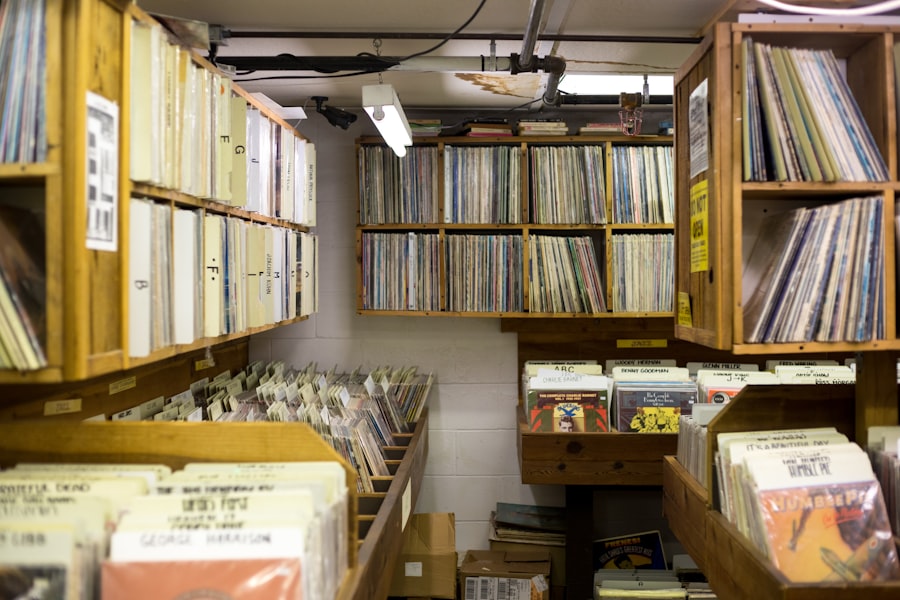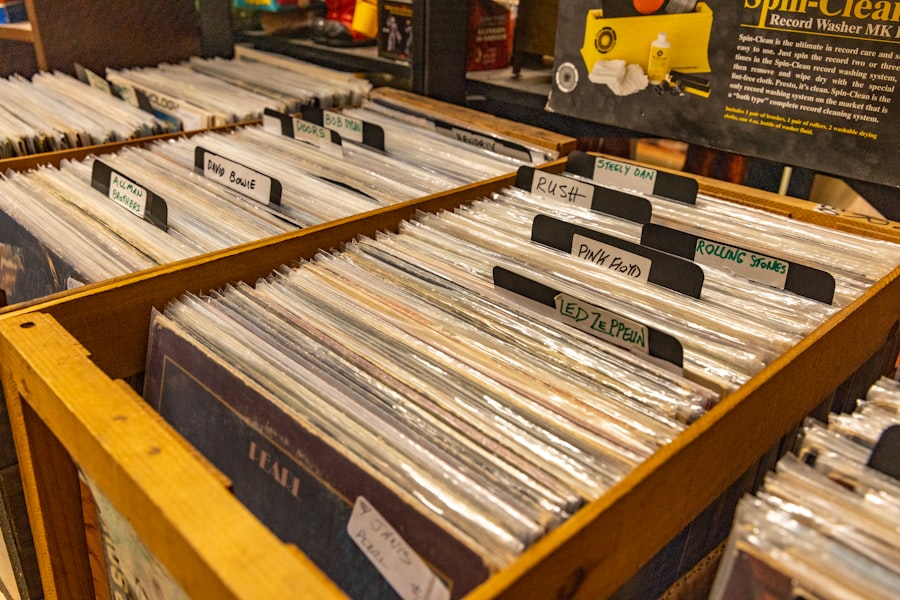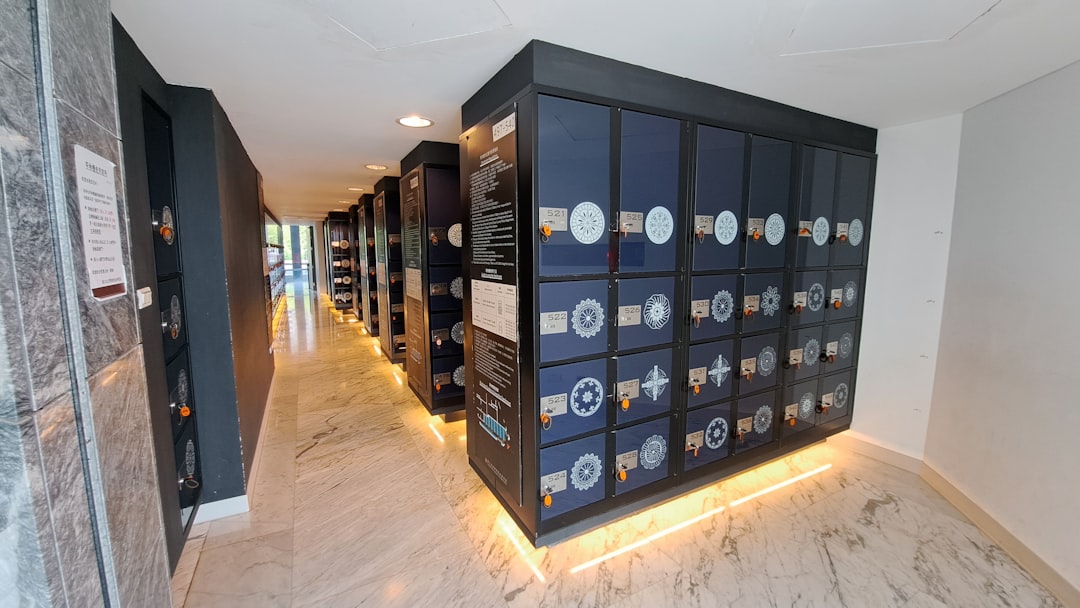The Hall of Records has long captivated the imaginations of historians, archaeologists, and enthusiasts of ancient mysteries. This elusive repository is said to contain vast amounts of knowledge from ancient civilizations, potentially holding the keys to understanding humanity’s past. Descriptions of the Hall often evoke images of a grand chamber filled with scrolls, tablets, and artifacts, meticulously cataloged and preserved for future generations.
The very existence of such a place has sparked countless theories and debates, leading many to wonder whether it is merely a figment of myth or a tangible reality waiting to be discovered. Throughout history, various cultures have alluded to the Hall of Records, suggesting that it may have been a central hub for knowledge and wisdom. Some believe it was established by the ancient Egyptians, while others attribute its origins to lost civilizations like Atlantis.
The allure of the Hall lies not only in its potential contents but also in the profound implications its discovery could have on our understanding of history. As scholars sift through ancient texts and archaeological findings, the quest for the Hall continues to inspire a sense of wonder and curiosity about what secrets it may hold.
Key Takeaways
- The Hall of Records is a legendary ancient archive believed to hold vast historical knowledge, linked closely to the Great Sphinx.
- Numerous myths and legends have fueled ongoing searches and modern expeditions aiming to locate this mysterious repository.
- Discoveries and advanced technology are being used to explore potential sites and decode ancient knowledge that could reshape our understanding of history.
- The Hall of Records is tied to ancient civilizations, but its existence remains controversial, with skepticism and debates challenging many claims.
- Ethical concerns emphasize the importance of preserving and protecting any findings, ensuring responsible exploration as the quest for the Hall of Records continues.
The Search for the Hall of Records: Exploring Ancient Legends and Myths
The search for the Hall of Records is steeped in a rich tapestry of legends and myths that span across cultures and epochs. Many ancient texts reference a hidden repository of knowledge, often guarded by enigmatic figures or concealed within sacred sites. For instance, the Egyptian Book of the Dead speaks of a “Hall of Ma’at,” where souls are judged and knowledge is weighed.
Such references have led researchers to speculate that the Hall of Records may be linked to spiritual or metaphysical realms, further complicating the search for its physical location. In addition to Egyptian lore, other cultures have contributed to the narrative surrounding the Hall. The tales of Atlantis, as recounted by Plato, suggest that this advanced civilization possessed immense knowledge that was lost when it sank beneath the waves.
Some theorists propose that remnants of this knowledge may be preserved in the Hall of Records, waiting to be unearthed by those who dare to seek it. These legends not only fuel the imagination but also serve as a reminder of humanity’s enduring quest for understanding and enlightenment.
The Great Sphinx and the Hall of Records: Uncovering the Connection

The Great Sphinx of Giza stands as one of the most iconic symbols of ancient Egypt, its enigmatic presence shrouded in mystery. Many researchers have posited a connection between the Sphinx and the elusive Hall of Records, suggesting that the Sphinx may serve as a guardian or marker for this hidden repository. Some theories propose that the Sphinx was constructed as a sentinel to protect the knowledge contained within the Hall, while others speculate that it may even conceal entrances or passages leading to this fabled location.
Archaeological investigations around the Sphinx have revealed intriguing findings that lend credence to these theories. Subsurface scans and geological studies have indicated the possibility of hidden chambers beneath the Sphinx, igniting excitement among those who believe that these chambers could lead to the Hall of Records. As excavations continue, researchers remain hopeful that they may uncover evidence that links these two monumental structures, shedding light on their shared significance in ancient Egyptian culture.
The Quest for the Hall of Records: Modern Expeditions and Discoveries
| Expedition | Year | Location | Key Discoveries | Researchers Involved | Significance |
|---|---|---|---|---|---|
| Gantenbrink’s Tunnel Exploration | 1993 | Great Pyramid of Giza, Egypt | Discovery of a sealed limestone door in the southern shaft | Rainer Gantenbrink | Provided new insights into pyramid internal structures |
| ScanPyramids Project | 2015-2017 | Great Pyramid of Giza, Egypt | Identification of large voids inside the pyramid using muon tomography | Hassan Selim, Mehdi Tayoubi, et al. | Advanced understanding of pyramid construction and hidden chambers |
| Hieroglyphic Analysis Expedition | 2010 | Saqqara, Egypt | Deciphering of newly found inscriptions hinting at ancient archives | Dr. Zahi Hawass and team | Suggested existence of ancient record-keeping sites |
| Underwater Survey near Alexandria | 2018 | Coastal Egypt | Discovery of submerged ruins possibly linked to ancient libraries | Franck Goddio and team | Expanded the search for lost knowledge repositories beyond pyramids |
| Remote Sensing and Satellite Imaging | 2020 | Various Egyptian sites | Identification of potential underground chambers and tunnels | International Archaeological Consortium | Enhanced non-invasive exploration techniques for archaeological sites |
In recent years, modern expeditions have sought to unravel the mysteries surrounding the Hall of Records through advanced technology and innovative archaeological techniques. Teams of researchers equipped with ground-penetrating radar and other imaging technologies have scoured sites in Egypt and beyond, searching for signs of hidden chambers or artifacts that could point to the existence of the Hall. These efforts have yielded promising results, with some expeditions uncovering previously unknown structures that may be connected to ancient repositories of knowledge.
One notable expedition involved a collaboration between archaeologists and engineers who utilized 3D scanning technology to create detailed models of ancient sites. This approach not only aids in mapping potential locations for the Hall but also allows researchers to analyze architectural features that may provide clues about its design and purpose. As these modern explorations continue, they bring with them a renewed sense of hope that the secrets of the Hall of Records may soon be revealed.
The Secrets Within: What Could the Hall of Records Contain?
The contents of the Hall of Records are a subject of intense speculation and intrigue. Many theorists believe that it could house an extensive collection of ancient texts, scrolls, and artifacts that document humanity’s history, scientific advancements, and spiritual teachings. Some envision it as a treasure trove of lost knowledge—everything from advanced mathematics and astronomy to forgotten philosophies and healing practices.
The potential implications of such discoveries are staggering; they could reshape our understanding of history and provide insights into ancient civilizations’ achievements. Moreover, some proponents suggest that the Hall may contain prophecies or predictions about future events, offering guidance for contemporary society. This notion resonates with those who believe in cyclical patterns in history, where lessons from the past can inform present-day challenges.
The allure of uncovering such profound wisdom drives many on their quest for the Hall, as they seek not only to understand what was lost but also to apply those lessons to modern life.
Decoding Ancient Knowledge: The Potential Impact of Uncovering the Hall of Records

The discovery of the Hall of Records could have far-reaching consequences for various fields, including history, archaeology, philosophy, and even science. If ancient texts were found detailing advanced technologies or medical practices long forgotten, they could revolutionize contemporary understanding in these areas. Imagine uncovering blueprints for sustainable energy sources or cures for diseases that have plagued humanity for centuries—such revelations could alter the course of human development.
Furthermore, decoding ancient knowledge could foster a greater appreciation for cultural heritage and diversity. As scholars analyze texts from different civilizations, they may uncover shared themes and ideas that transcend geographical boundaries. This newfound understanding could promote dialogue among cultures and encourage collaborative efforts to address global challenges.
In essence, unlocking the secrets within the Hall could serve as a catalyst for unity and progress in an increasingly interconnected world.
The Hall of Records and Ancient Civilizations: Examining the Link
The concept of a Hall of Records is often intertwined with discussions about ancient civilizations and their contributions to human knowledge. From Mesopotamia to Mesoamerica, many cultures developed sophisticated systems of writing and record-keeping that laid the groundwork for future generations. By examining these civilizations’ achievements, researchers can draw parallels between their practices and the potential existence of a centralized repository like the Hall.
For instance, ancient Sumerians are credited with creating one of the earliest forms of writing—cuneiform—which was used to document everything from trade transactions to religious texts. Similarly, the Maya developed an intricate writing system that recorded their history and cosmology. These examples highlight humanity’s innate desire to preserve knowledge across time and space, suggesting that a Hall of Records could be a natural extension of this impulse.
The Hall of Records and Modern Technology: Utilizing Tools to Uncover the Truth
Advancements in technology have revolutionized archaeological practices, enabling researchers to explore sites with unprecedented precision and efficiency. Ground-penetrating radar, satellite imagery, and 3D modeling are just a few tools that have enhanced our ability to search for hidden structures like the Hall of Records. These technologies allow archaeologists to visualize subsurface features without invasive excavation methods, preserving delicate sites while still pursuing their quest for knowledge.
Moreover, digital databases and artificial intelligence are transforming how researchers analyze ancient texts and artifacts. By employing machine learning algorithms, scholars can identify patterns and connections within vast amounts of data that would be impossible to discern manually. This synergy between technology and archaeology holds great promise for uncovering new insights about ancient civilizations and their potential links to the Hall of Records.
The Controversy Surrounding the Hall of Records: Skepticism and Debunking Myths
Despite its allure, the existence of the Hall of Records is met with skepticism from some scholars who argue that it is more myth than reality.
This skepticism has led to debates within academic circles about whether pursuing such legends diverts attention from more tangible archaeological efforts.
Additionally, some skeptics argue that sensationalized narratives surrounding the Hall can perpetuate misconceptions about ancient civilizations. They caution against romanticizing lost knowledge or attributing modern advancements solely to ancient wisdom without acknowledging contemporary contributions. This discourse highlights the importance of critical thinking in archaeology—while exploring legends can inspire curiosity, it is essential to ground research in empirical evidence.
Preserving and Protecting the Hall of Records: Ethical Considerations and Conservation Efforts
Should the Hall of Records be discovered, ethical considerations regarding its preservation would come to the forefront. The potential impact on local communities, cultural heritage sites, and ecosystems must be carefully weighed against desires for exploration and discovery. Archaeologists face complex dilemmas when balancing scientific inquiry with respect for indigenous cultures and their histories.
Conservation efforts would also play a crucial role in safeguarding any artifacts or texts found within the Hall. Proper documentation, restoration techniques, and secure storage facilities would be necessary to ensure that these invaluable pieces of history are protected from deterioration or exploitation. Engaging local communities in conservation efforts can foster a sense of ownership over their cultural heritage while promoting sustainable tourism practices that benefit both researchers and residents alike.
The Future of the Hall of Records: What Lies Ahead in the Quest for Ancient Secrets
As interest in uncovering the Hall of Records continues to grow, so too does hope for future discoveries that could reshape our understanding of history. Ongoing advancements in technology will likely enhance archaeological methods, allowing researchers to explore previously inaccessible sites with greater ease. Collaborative efforts among international teams may also yield new insights as scholars share knowledge across disciplines.
Ultimately, whether or not the Hall exists as described in legends remains uncertain; however, its pursuit serves as a testament to humanity’s enduring quest for knowledge and understanding. As explorers venture into uncharted territories—both physical and intellectual—they carry with them an innate curiosity that drives them forward in search of answers about our past and what it means for our future.
The Hall of Records, often shrouded in mystery and intrigue, is a topic that has captivated the imaginations of many. Its forbidden status raises questions about the information it may hold and the reasons behind its secrecy. For a deeper exploration of this enigmatic subject, you can read more in this related article: X File Findings. This resource delves into various theories and historical accounts surrounding the Hall of Records, providing insights that may shed light on why access to it is so restricted.
WATCH THIS! The Sphinx’s Secret Chamber: Why Egypt’s Government Forbids Scanning the Hall of Records
FAQs
What is the Hall of Records?
The Hall of Records is a legendary or mythical archive said to contain ancient knowledge, historical documents, and records of great civilizations. It is often associated with secret or hidden repositories of information.
Where is the Hall of Records believed to be located?
The Hall of Records is commonly believed to be located beneath the Great Sphinx of Giza in Egypt, although no verified evidence has confirmed its existence or exact location.
Why is the Hall of Records considered forbidden?
The Hall of Records is considered forbidden because access to it is often restricted or denied by authorities, either due to its supposed sacred nature, the protection of ancient secrets, or because it is part of conspiracy theories suggesting that certain knowledge is deliberately hidden from the public.
Is there any archaeological evidence supporting the existence of the Hall of Records?
No definitive archaeological evidence has been found to prove the existence of the Hall of Records. Most claims about it are based on speculation, myths, or unverified sources.
Who first proposed the idea of the Hall of Records?
The concept of the Hall of Records was popularized in the early 20th century by writers and researchers interested in ancient mysteries, such as Edgar Cayce, who claimed to have psychic insights about its existence.
Can the public visit the Hall of Records?
Since the Hall of Records is considered a myth or a secret location, it is not accessible to the public, and no official tours or visits are available.
Are there any official statements about the Hall of Records from Egyptian authorities?
Egyptian authorities have not confirmed the existence of the Hall of Records and generally regard it as a legend or part of speculative theories rather than an actual archaeological site.
What is the significance of the Hall of Records in popular culture?
The Hall of Records has become a popular subject in books, documentaries, and conspiracy theories, symbolizing hidden knowledge, ancient wisdom, and the mysteries of lost civilizations.
